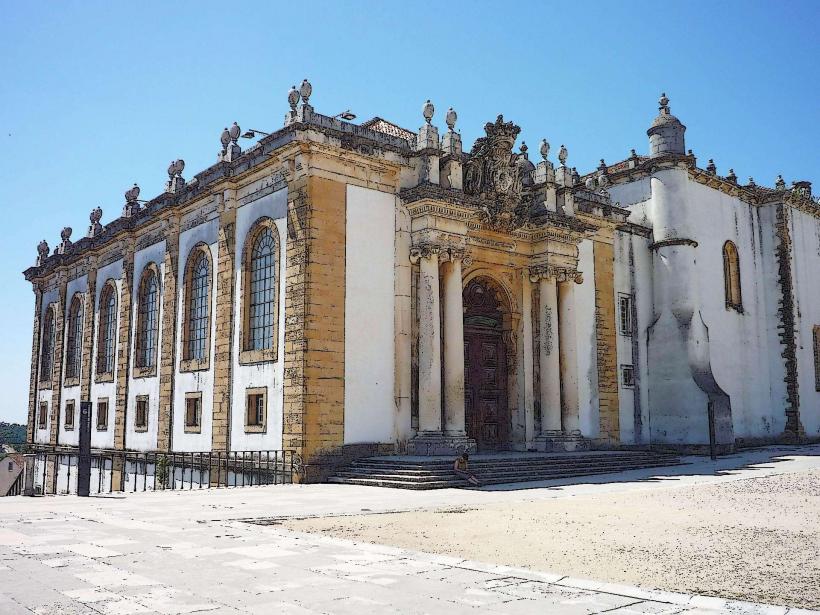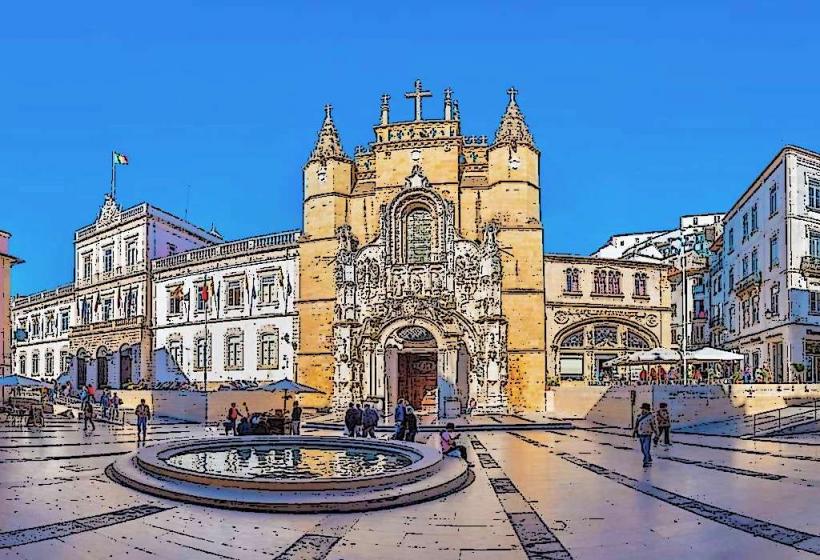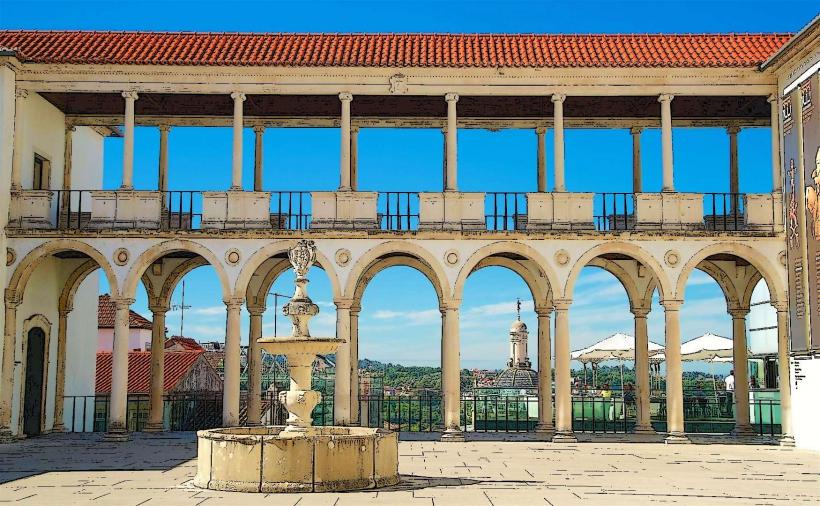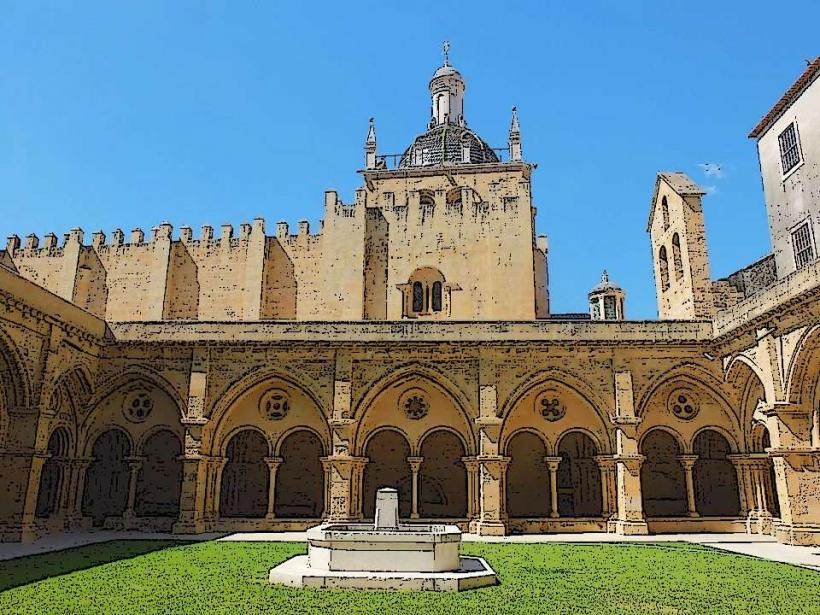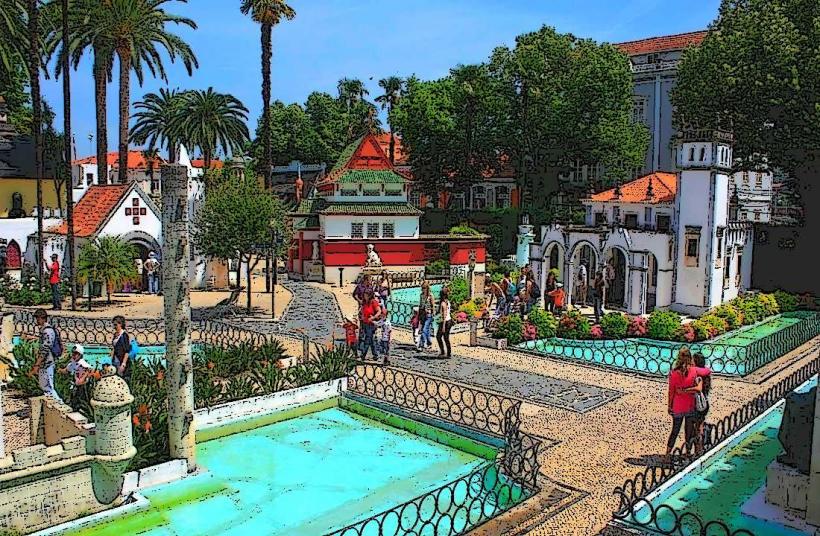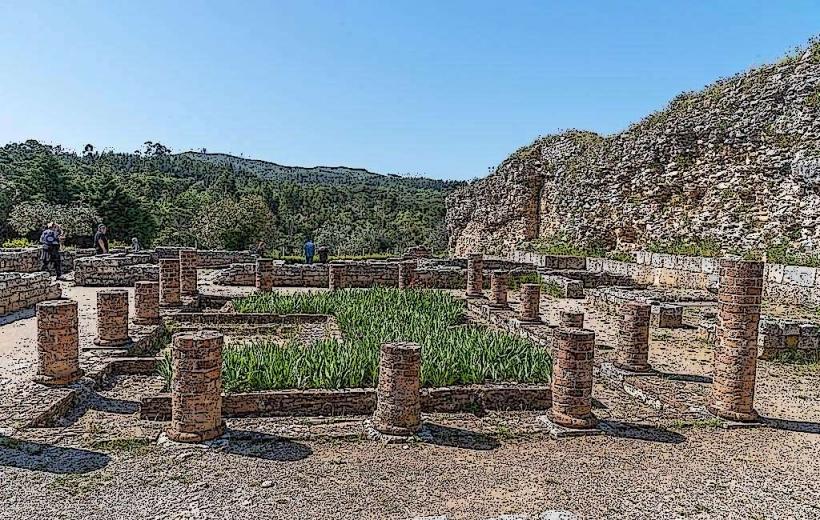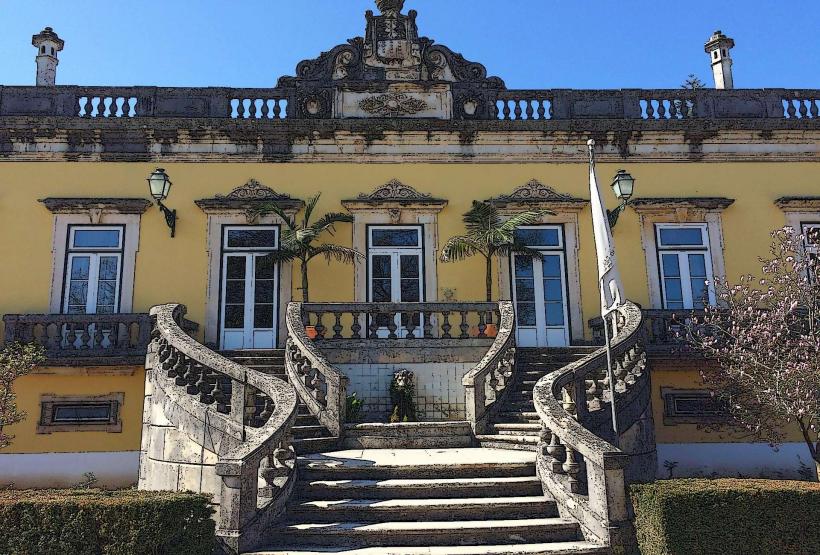Information
Landmark: University of CoimbraCity: Coimbra
Country: Portugal
Continent: Europe
The University of Coimbra is one of the oldest and most prestigious universities in Europe and is a central institution in the history of Portugal's education and cultural heritage. Located in the city of Coimbra, in central Portugal, the university has been a major center of learning for centuries, attracting students and scholars from around the world. It was officially founded in 1290 by King Dinis I of Portugal, though its roots trace back to earlier educational institutions in Lisbon. Today, it remains an important educational, cultural, and architectural landmark.
1. Historical Significance
- Foundation and Development: The University of Coimbra was originally established in Lisbon, but in the 16th century, it was moved to Coimbra, where it has remained ever since. Throughout its history, it has played a central role in shaping Portugal’s intellectual, scientific, and cultural life. The university was recognized by the Papal Bull of 1290 by Pope Nicholas IV, marking its official recognition.
- Educational Influence: Over the centuries, the university has been an essential institution for the development of Portuguese higher education and was a significant influence in the European intellectual tradition. It has educated many notable figures, including politicians, writers, and scientists who have contributed to Portugal's national identity and global cultural influence.
2. Cultural and Architectural Heritage
- UNESCO World Heritage Site: In 2013, the historic University of Coimbra – Alta and Sofia was designated a UNESCO World Heritage Site due to its historical significance and exceptional architecture. The university is recognized for its integration with the city, as the campus extends across the historic district of Coimbra.
- Joanina Library: One of the university’s most iconic and stunning architectural features is the Joanina Library (Biblioteca Joanina), built in the 18th century during the reign of King João V. This Baroque-style library is one of the most beautiful and historically significant libraries in Europe, housing rare manuscripts and a collection of over 200,000 books. It is also home to a population of bat colonies, which are integral to the building’s ecosystem.
- University Tower: The University Tower (Torre da Universidade) is another symbol of the institution. It offers panoramic views of Coimbra and has an astronomical observatory at the top. The tower is part of the university's Royal Palace, which includes other important buildings such as the Royal Chapel of São Miguel.
- Botanical Garden: The University of Coimbra Botanical Garden (Jardim Botânico da Universidade de Coimbra) is one of the oldest botanical gardens in Europe. Founded in the 18th century, it covers 13 hectares and showcases a vast collection of plants from around the world. It serves as a center for scientific research and as a peaceful space for students and visitors.
- Old Cathedral of Coimbra: The Sé Velha (Old Cathedral), part of the university complex, is a stunning example of Romanesque architecture and is one of the most important historical monuments in the city. It was built in the 12th century and remains an important part of the university's heritage.
3. Academic Structure and Modern Role
- Faculties and Courses: Today, the University of Coimbra has a wide range of faculties offering undergraduate, master's, and doctoral programs. The university’s academic structure includes faculties in Arts and Humanities, Science and Technology, Law, Medicine, Economics, Psychology, and Social Sciences, among others.
- Research and Innovation: The university is at the forefront of scientific research in Portugal and internationally, with a focus on areas like biomedical sciences, environmental studies, and technology. It is home to several research centers and collaborates with other prestigious institutions worldwide.
- International Collaboration: The University of Coimbra is a member of various international university networks and exchange programs. It attracts a diverse student body, including students from around the world, and has a significant impact on global research and academia.
4. Traditions and Student Life
- Academic Traditions: The University of Coimbra is famous for its centuries-old academic traditions and student rituals. Among the most notable traditions is the Praxe, a form of initiation into university life that includes songs, chants, and other customs. The Capa e Batina (the black student cape and hood) is worn by students during formal events and represents the deep-rooted sense of pride in being a part of the university community.
- Fado de Coimbra: The Fado of Coimbra is a distinctive style of fado (traditional Portuguese music) associated with the students of the University of Coimbra. It is a soulful and melancholic music genre that has been recognized as part of Portugal's intangible cultural heritage. Fado de Coimbra is usually performed by male students dressed in academic capes, and it is an integral part of the university's cultural identity.
- Student Associations and Events: The university hosts various student events throughout the year, including academic festivals and cultural performances. One of the most important events is the Queima das Fitas (Burning of the Ribbons), an annual celebration that marks the end of the academic year and features parades, music, and traditional ceremonies. It is a time for students to celebrate their achievements and participate in the colorful traditions of Coimbra.
5. Notable Alumni and Contributions
- Famous Alumni: The University of Coimbra has a long list of notable alumni who have contributed to various fields, including José Saramago, Nobel Prize-winning author; António Guterres, former Prime Minister of Portugal and current Secretary-General of the United Nations; Amália Rodrigues, famous fado singer; and Egas Moniz, a Nobel laureate in Physiology and Medicine for his work on the lobotomy procedure.
- Contributions to Science and Medicine: The university is renowned for its contributions to science and medicine, particularly in the areas of neuroscience, public health, and engineering. It continues to be an influential institution in the development of new knowledge and technological advances in Portugal and beyond.
6. Tourism and Visitor Experience
- Tourist Access: The University of Coimbra is an important tourist attraction, with visitors flocking to the campus to admire its historic buildings, libraries, and stunning views. Visitors can take guided tours to learn about the university’s history, architecture, and academic traditions. The tours often include stops at the Joanina Library, University Tower, Royal Palace, and the Botanical Gardens.
- Cultural Events: The university also hosts a range of public cultural events, including concerts, theater performances, and lectures. The Museu da Ciência (Museum of Science), located within the university, offers interactive exhibits and showcases the institution's scientific history and achievements.
- Students' Chapel and the Royal Palace: The Royal Palace (Paço Real) within the university complex is home to several important buildings, including the Royal Chapel of São Miguel, where the university’s kings and dignitaries were once crowned. The Students' Chapel is another key feature, often used for academic ceremonies.
7. The University’s Role in Modern Portugal
- Continuing Legacy: Today, the University of Coimbra remains a leading educational and research institution in Portugal. It continues to uphold its centuries-old traditions while evolving to meet the challenges of modern education. As an important center for academic excellence, it plays a key role in shaping the future of Portugal’s intellectual and cultural life.
- Global Recognition: The university’s strong academic programs and research output contribute to its international reputation. It regularly ranks among the top universities in the world and attracts scholars, researchers, and students from every continent.
8. Best Time to Visit
- Spring and Summer: The best time to visit the University of Coimbra is during the spring and summer months when the weather is pleasant and there are many cultural events. The campus is particularly lively during the Queima das Fitas, making it a unique experience to see the traditions in action.
- Autumn: The autumn months are also a good time to visit as the university campus is quieter, and the foliage around the Botanical Garden creates beautiful scenery.
Conclusion
The University of Coimbra is not only a prestigious academic institution but also a cultural treasure that represents Portugal's intellectual history. With its rich heritage, stunning architecture, and vibrant student life, it is a must-visit destination for anyone interested in the cultural and academic history of Portugal. Whether you are exploring its centuries-old libraries, attending a fado performance, or simply strolling through the beautiful campus, the University of Coimbra offers a unique experience that connects the past and present of Portuguese education.

